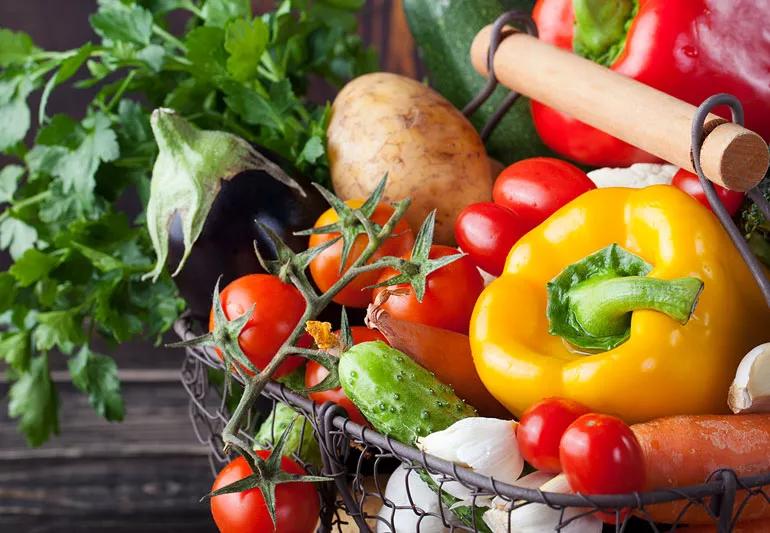Research is inconclusive, so don’t stop eating tomatoes, potatoes and peppers just yet

Image content: This image is available to view online.
View image online (https://assets.clevelandclinic.org/transform/956789be-abea-47b3-b015-d755e32419ef/nightshade-Vegetables-619254408-770x533-1_jpg)
Variety of vegetables including a yellow bell pepper, tomatoes and eggplant.
Can a nutritious food also be bad for your arthritis? That’s the accusation levied against tomatoes, white potatoes, eggplant, peppers and other veggies in the ominously named “nightshade” family.
Advertisement
Cleveland Clinic is a non-profit academic medical center. Advertising on our site helps support our mission. We do not endorse non-Cleveland Clinic products or services. Policy
Many swear that eating nightshade vegetables elevates arthritis pain, with just a few nibbles of these garden goodies taking joint swelling and stiffness to another level.
But is the claim medical fact or fiction? That’s a debate that’s raged for decades. Let’s take a look at the connection between arthritis and nightshade vegetables with rheumatologist Leonard Calabrese, DO.
The “nightshade” name covers an enormous plant family (Solanaceae) that’s more than 2,000 strong. It’s a wide-ranging genus that includes common produce items probably sitting in your kitchen right now.
Nightshade vegetables include:
In addition, anything made with a nightshade plant — including sauces (tomato sauce, etc.), herbs (ashwagandha) and spices (paprika) — falls under the nightshade umbrella.
Advertisement
Don’t be alarmed, but nightshade vegetables are known for being a bit toxic. The plants contain alkaloids, which can be dangerous in large doses. Some nightshade plants are even deemed unsafe to eat. (One is even called deadly nightshade!)
A bitter-tasting compound known as solanine is the main culprit, explains Dr. Calabrese. (Fast fact: Plants produce solanine to help repel hungry insects and animals. The alkaloid can be deadly to some nibbling creatures.)
But clearly, there’s no need to slap a DANGER sticker on every tomato. Low levels of solanine in edible nightshade vegetables — like those listed above — make them safe for people to eat, adds Dr. Calabrese.
One word of warning, though: Avoid potatoes that turn green. That coloring may signal unhealthy levels of solanine. It’s best to throw green potatoes away instead of risking a nasty bout of nausea or diarrhea.
The answer is a definite maybe. (How’s that for being specific?)
There’s evidence suggesting that solanine in nightshade vegetables can irritate your gut and cause intestinal inflammation. This inflammation appears to heighten joint pain in a complicated gut and musculoskeletal system relationship that continues to be studied.
And a 2020 study that focused on building an anti-inflammatory diet for people with arthritis recommended not eating tomatoes, potatoes and eggplant given their potential for causing issues.
But there’s also research showing that purple potatoes, a nightshade, may be effective at reducing inflammation. (How’s that for a plot twist?)
Bottom line? Research is limited and conflicting when it comes to nightshade veggies and arthritis. There may be a connection between the two … but it’s also possible there’s no link at all.
The answer is complicated. Given the nutritional value of tomatoes, peppers, potatoes and other nightshade vegetables, it would be a shame to eliminate them from your diet on an unfounded theory, notes Dr. Calabrese.
There’s also no clear sign that avoiding these foods will make arthritis pain go away.
“It is highly unlikely that avoiding the trace amounts of solanine found in nightshade vegetables will ease your arthritic pain or inflammation,” he says. “Research to support this claim just isn’t there.”
If you eat a baked potato one day and find your arthritis aching the next day, your body may be telling you something.
The Arthritis Foundation suggests a dietary experiment if you think a nightshade food is giving you problems. Stop eating the item for two weeks and then add it back into a meal. If arthritis symptoms flare up … well, that’s a sign you may be sensitive to the food. Adjust accordingly.
Advertisement
Overall, one of the best ways to reduce arthritis symptoms and inflammation is to simply eat well, says Dr. Calabrese.
“By that, I mean following an anti-inflammatory diet such as the Mediterranean diet, or one that is predominantly plant-based with fresh fruits and vegetables, legumes, whole grains, nuts and healthy fats,” he says.
You’ll also want to limit meat (especially processed meats like sausage) and fried foods, as well as processed foods and other forms of refined carbohydrates. (Find more diet tips to fight inflammation.)
Advertisement

Delivered every Tuesday!
Sign up for our Health Essentials emails for expert guidance on nutrition, fitness, sleep, skin care and more
It's a letter about the news!
Learn more about our editorial process.
Advertisement
Simple exercises like tendon glides and finger lifts can have a big impact
From heating pads and ice to exercises and splints, find the relief that works for you
What’s the difference between these types of inflammatory arthritis?
The link between joint pain and skin rashes
What’s the difference between these types of arthritis?
Remember to start slow and if things don't improve, ask your doctor about more advanced solutions
Working out is one of the best things you can do to improve your symptoms
Use tools, tips and common sense
Type 2 diabetes isn’t inevitable with these dietary changes
Applying a hot or cold compress can help with pain
Pump up your iron intake with foods like tuna, tofu and turkey